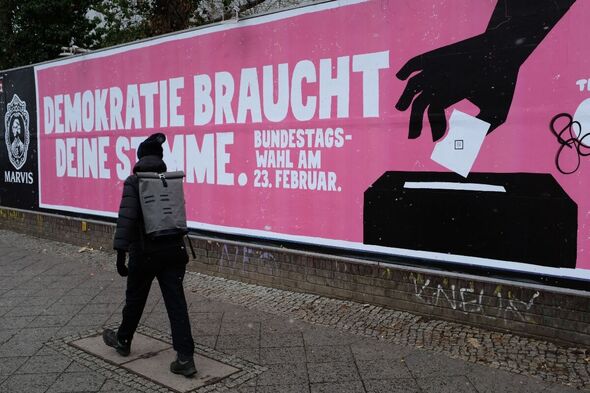A strong and stable government in Germany is important for the country and European Union, given its role with France as a motor of the bloc’s economy.
But German voters will have to wait weeks before a government is formed because of the way Germany’s electoral system is set up.
It rarely gives any party an absolute majority and opinion polls suggest none of the parties vying for votes are anywhere near one this time.
Germany has no tradition of minority governments at the national level, which means two or more parties will most likely have to form a coalition.
There is no formal referee to oversee the process of forming a new government and no set time limit. Parties hold exploratory talks to determine who they have most common ground with and one combination of parties then moves on to formal coalition talks.
Those negotiations typically produce a detailed coalition agreement setting out the new government’s plans, which typically requires approval from conventions of the parties involved.
Some parties may choose to put it to a ballot of their entire membership, lengthening the whole process, which once complete, means members of the Bundestag can elect a new chancellor.
Friedrich Merz is widely tipped to fill that role, with his Christian Democratic Union (CDU) party ahead in the polls. He has said he hopes to form a new government by mid-April if he wins.
Until a new Chancellor is elected, current incumbent Olaf Scholz’s outgoing government will remain in office on a caretaker basis.
Polls are due to open at 8am and close at 6pm on election day (Sunday), with Germans also able to vote by postal ballot, which must arrive by the time polling stations close to be counted.
Exit polls will come and vote-counting will begin immediately after the voting ends, and a general picture of the outcome should be clear quite quickly. A final official result is expected early on Monday.
Four candidates are running to be Germany’s next leader: Mr Scholz, of the centre-Left Social Democrats, Mr Merz, the current Vice Chancellor Robert Habeck from the Greens and Alice Weidel, leader of the far-Right, anti-immigration party, Alternative for Germany (AfD).
Pre-election polls have put Mr Merz’s party in the lead with support of about 30%, ahead of the AfD on around 20%. Mr Scholz’s Social Democrats and Mr Habeck’s Greens lag further behind.
While Mr Merz is favourite to replace Mr Scholz as chancellor, it is not yet clear what governing coalitions will be possible after the election.
How easy it is to form a government may depend in part on how many parties are in the new parliament. Opinion polls show three parties hovering around the 5% of the vote needed to win seats. All mainstream parties have said they won’t work with the AfD.
The election is being held seven months earlier than originally planned because Mr Scholz’s three-party coalition collapsed in November as it argued about how to reinvigorate the economy, which has shrunk for the past two years.
One of the new government’s most urgent tasks will be to find an effective response to that problem. Another will be finding ways to reduce irregular migration, which has been a major issue during the election campaign.
